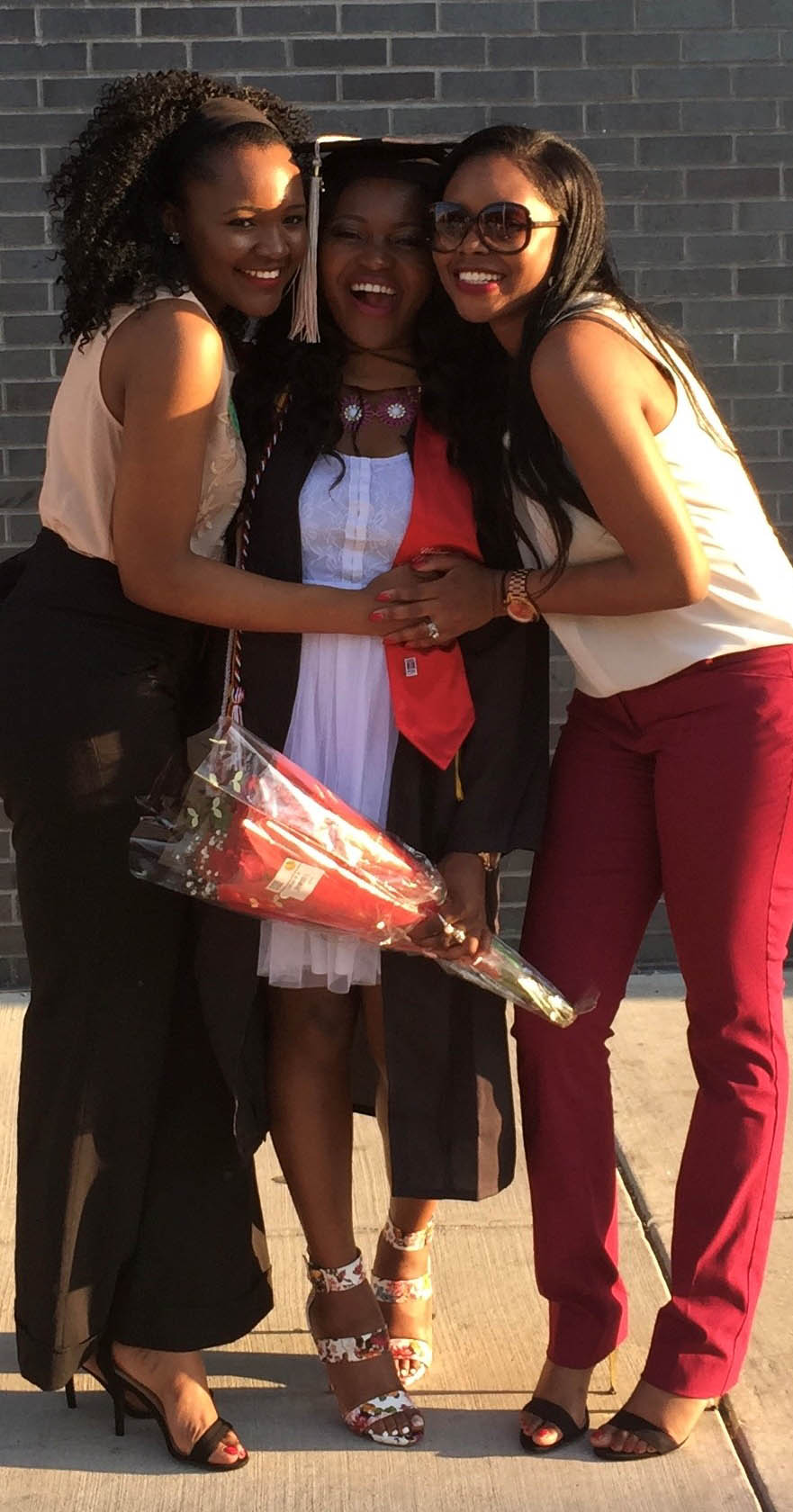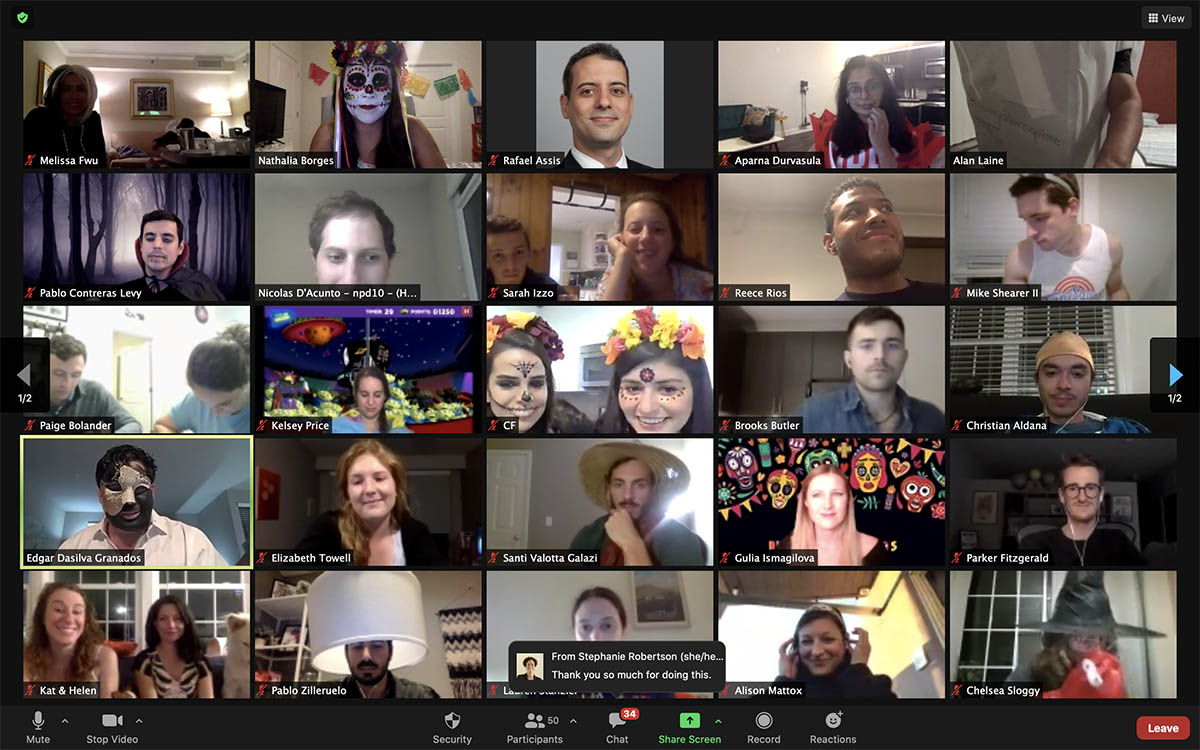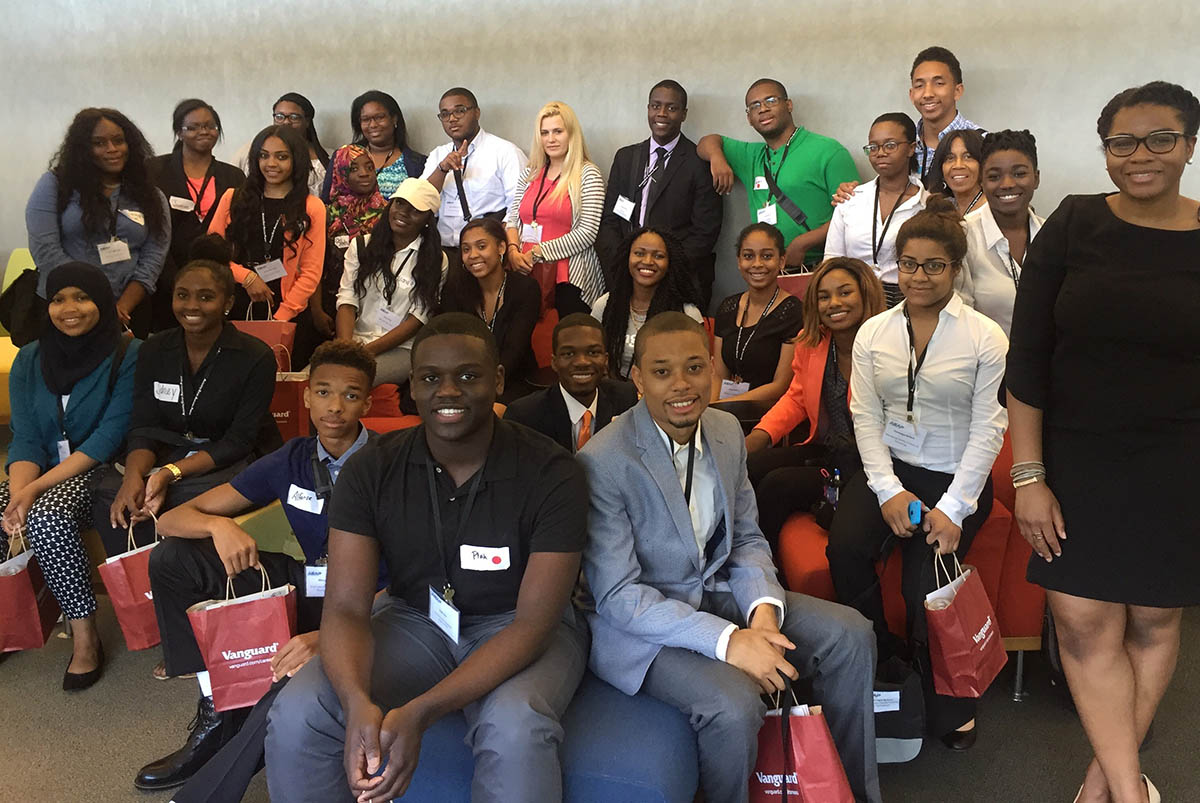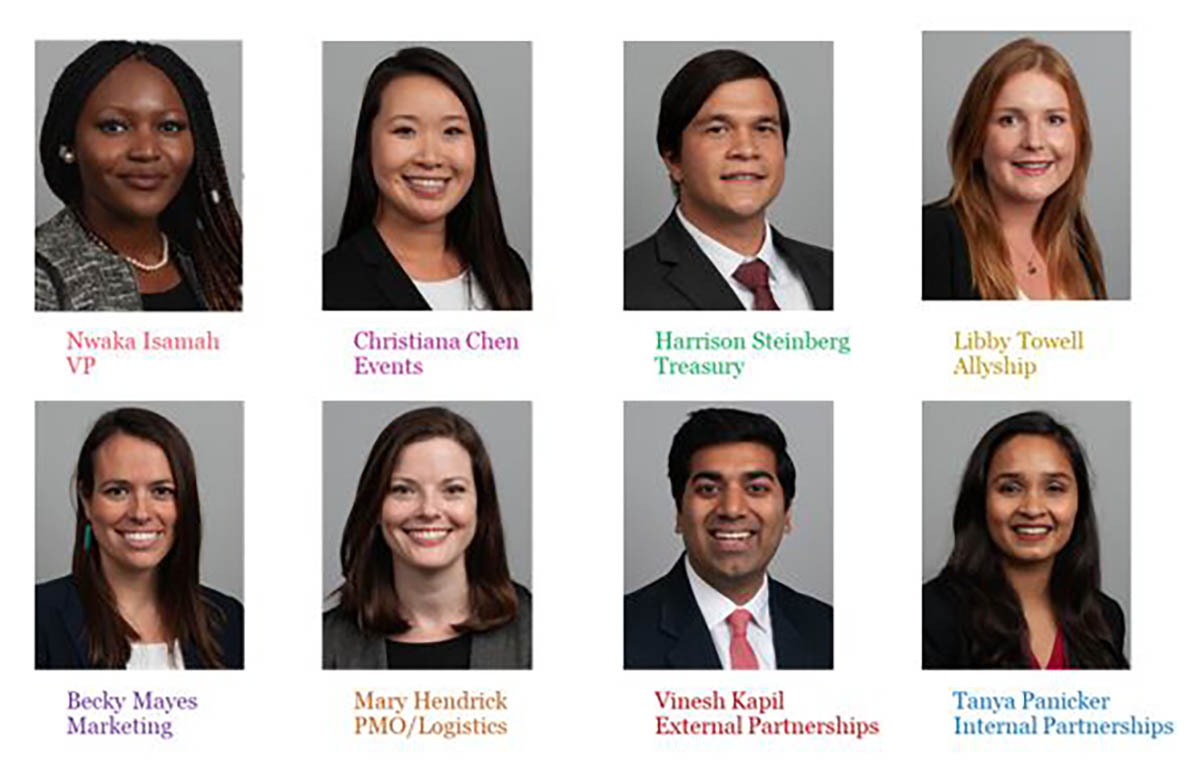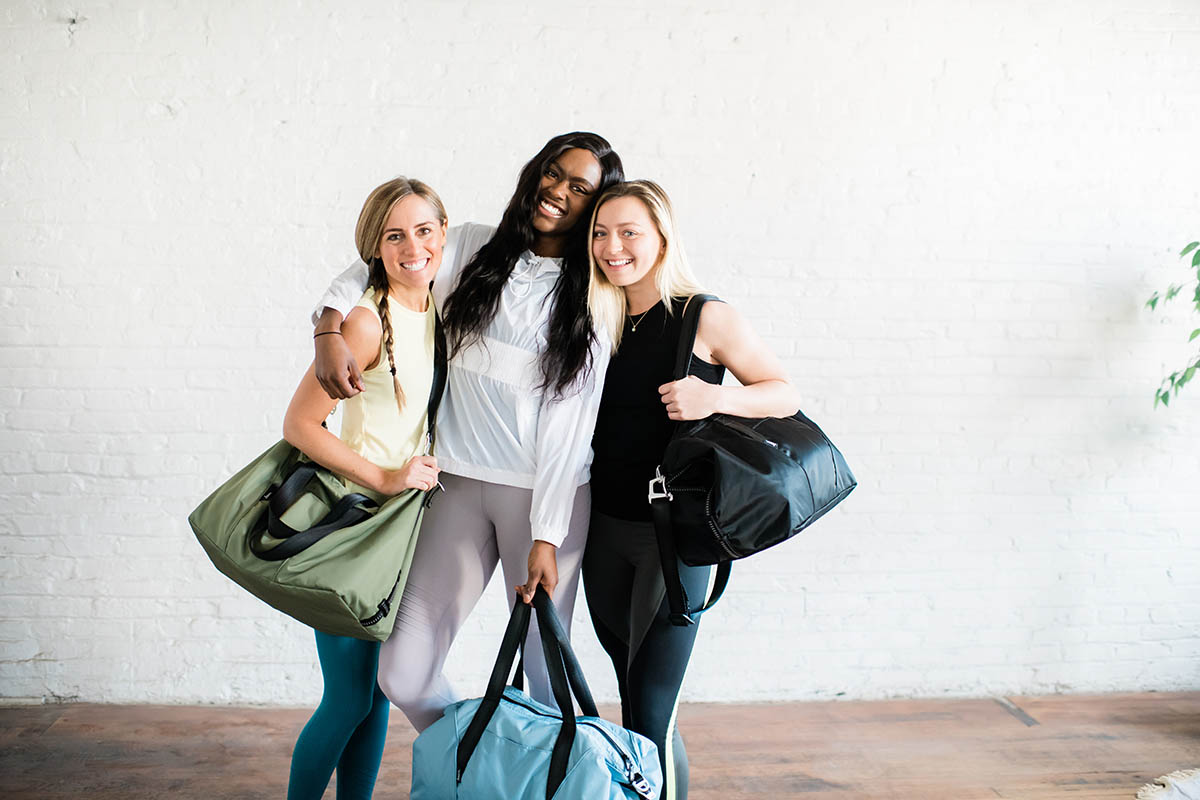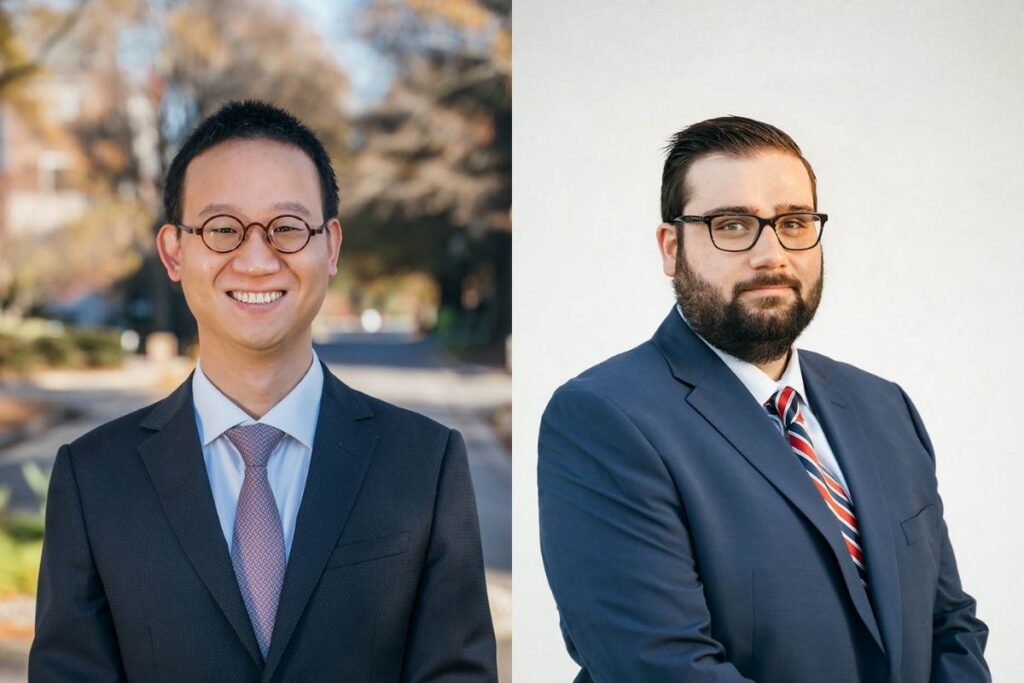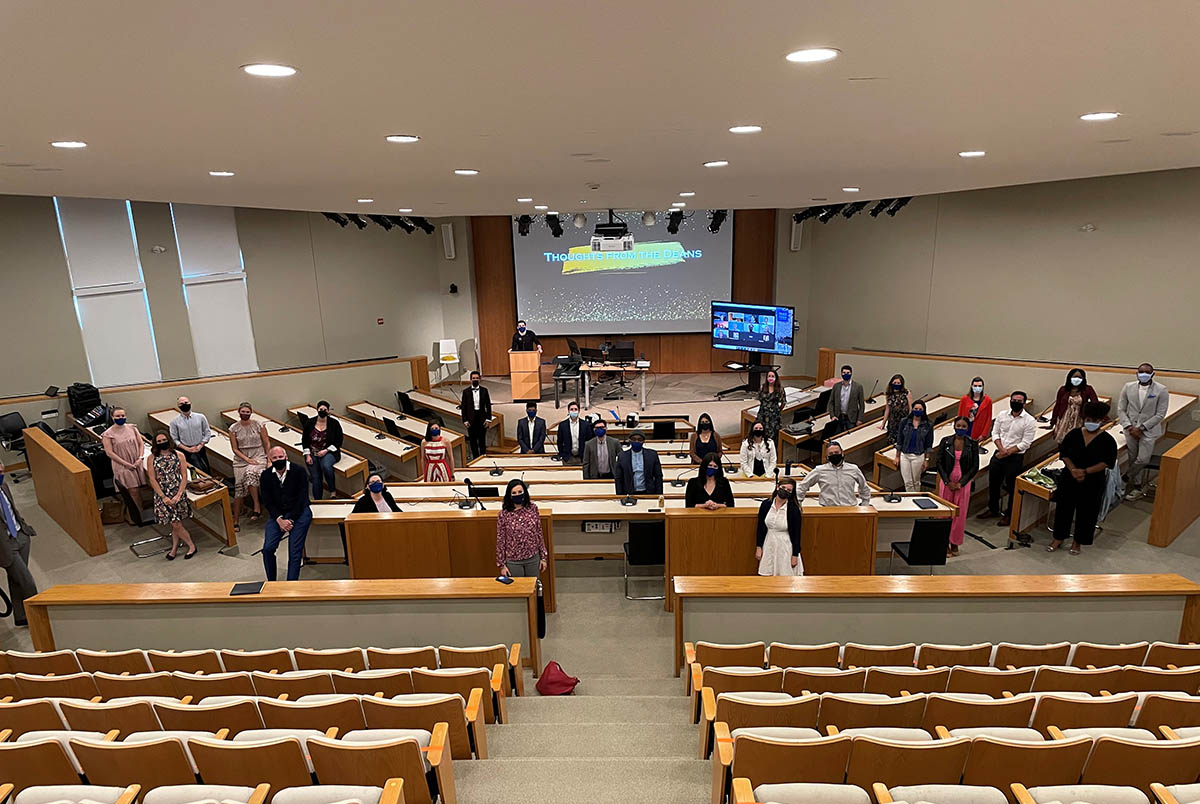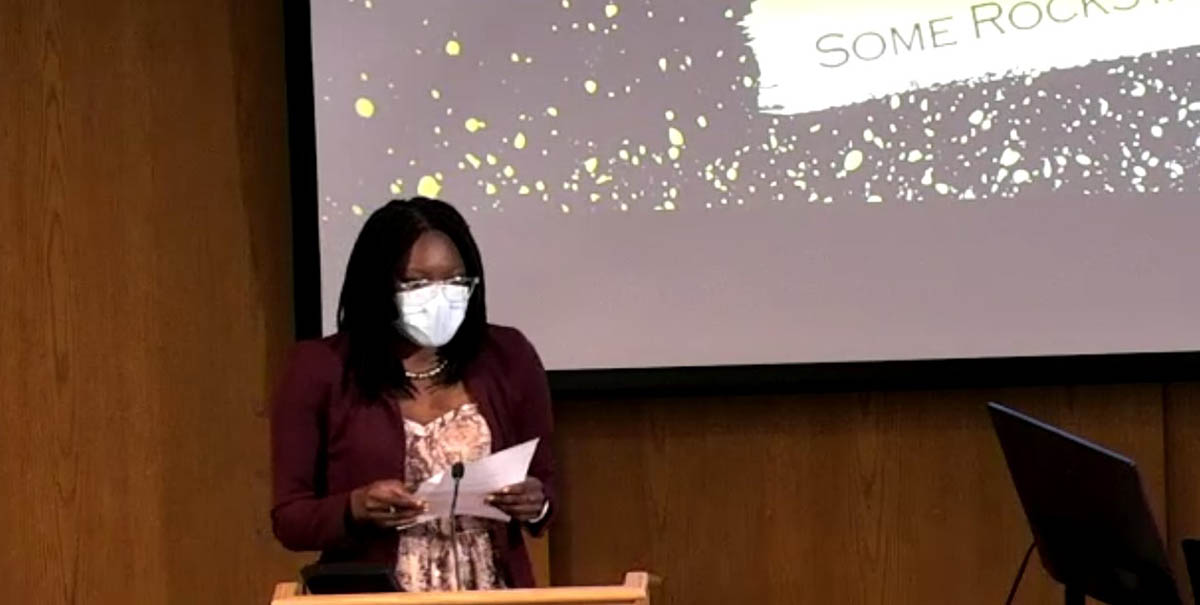|
|

GMAT Club Daily Prep
Thank you for using the timer - this advanced tool can estimate your performance and suggest more practice questions. We have subscribed you to Daily Prep Questions via email.
Customized
for You
Track
Your Progress
Practice
Pays
Not interested in getting valuable practice questions and articles delivered to your email? No problem, unsubscribe here.
Kudos
Bookmarks
| FROM Fuqua Student Blogs: Being a Woman at Fuqua |
|
One of my favorite stories is Jamaica Kincaid’s “Girl,” for reasons probably different from what the author had intended. I had lived and worked in spaces where sentences too often began with, “Women should do this,” or “A woman cannot.” That story is a reminder to brace myself when someone starts a sentence with, “Women should…” Getting an MBA was an act of positive rebellion. I wanted to, but somehow, I knew I also had to. For me, and for others after. Choosing the right business school was even more pertinent to the success of this ‘rebellion.’ I like to joke that my business school journey would make a perfect entry for, “How not to prepare for business school.” In July of 2018, I made the decision, wrote the GMAT in September, and applied to schools in October. I chose Fuqua for many reasons, the most compelling of which is the Fuqua community. The turning point for me was attending the Women’s Leadership Weekend in November 2018 (which, of course, I found out about and applied to only two hours before the deadline).  Women’s Leadership Weekend, 2018 Of the 150-plus women in attendance that weekend, I had traveled the farthest—all the way from Nigeria. But here was my tribe. I cannot explain in words how that weekend changed my perspective. Right there, I knew that I wanted to be a part of helping women find all the spaces where they belong. I want to push opportunities their way because I believe that awareness is half the battle and providing the support necessary to reach these professional goals was one of my main objectives. It is important for me to fulfill the promises I make to myself. It is doubly vital when those promises involve bettering others. So I knew that I had to be part of the Association of Women in Business (AWIB). AWIB tries to cater to the many layers of support that women at Fuqua require, including guiding a community of women, charting international careers and perspectives, conventional and unconventional career paths, male allies and their much-needed support, and much more. In my role as VP of Careers and Mentorship, (with my excellent cabinet) I strive to provide support and opportunities across all areas, but with a focus on emphasizing and uplifting non-traditional roles and careers. Some of our biggest challenges have been getting people to realize that AWIB is another touchpoint for career opportunities, actively curating opportunities and events beyond the most commonly pursued career paths, and utilizing the network built over the years outside the U.S. The goal is to consistently demonstrate that AWIB encompasses every woman who has shown up to Fuqua, regardless of background, color, proposed career and any other intersectionality. As with everything related to 2020, COVID-19 changed many things. Much of the business school experience is premised on contact and communication, usually in person. It became more important than ever to innovate and be dynamic in creating events and opportunities up to par or even better than what we experienced, pre-COVID. It was hard for the first few months because everyone was Zoomed out! I could now argue that some of the events we held virtually gave us more than what we expected. Maybe because there was a kind of intentionality, resilience and camaraderie that only comes from a sense of having survived, and continuing to survive together. Despite everything, there have been many successes. In 2020, we had more attendees than ever at the Women’s Leadership Weekend because the virtual option broke attendance barriers for women across the world.  Attendees at the 2020 Women’s Leadership Weekend Going forward, this is something we know we have to make room for. More corporate sponsors have shown up and are putting in the work to ensure that women MBAs are aware of all the opportunities available. The Daytime MBA class of 2022 is made up of 46 percent women! Of course, a lot of this has been possible with male allies and allies across multiple groups. Remember my three-month shotgun business school process? Throughout that journey, it was men who pushed me, from school shortlists to essay reviews and recommendation letters. Of course, this is not every woman’s story, but it is mine and that of many others at Fuqua. The role that male allies played in showing up for women and actively placing them in opportunity zones was clear. Here at Fuqua, it is a blessing to say that I do not go around consciously being reminded that I’m a woman. I do not feel that this is erasure or othering, but more an impartial weighing of your experience, opinions and decisions. I’m grateful and thankful that we show up and do what is necessary when it is essential to center women. There will always be more work because the world is evolving, and women-related issues may not stay the same. But here at Fuqua, we’re loudly and actively pushing for the change we want to see. The post Being a Woman at Fuqua appeared first on Duke Daytime MBA Student Blog. |
This Blog post was imported into the forum automatically. We hope you found it helpful. Please use the Kudos button if you did, or please PM/DM me if you found it disruptive and I will take care of it.
-BB
Kudos
Bookmarks
| FROM Fuqua Student Blogs: The Impact of Dr. Kevin White’s Sports Business Class on My Career |
|
Growing up, I knew I wanted to attend schools that placed an equal emphasis on academic and athletic success. Back in 2005, I was lucky enough to have Duke and the U.S. Military Academy both actively recruiting me for a track and field scholarship. The events of September 11th 2001 and the attack on the World Trade Center led me to pursue my undergraduate degree at West Point, with a commission as an officer upon graduation. But I never forgot about Duke or those, “Cameron Crazies.” While a student-athlete at West Point, I would become a Captain of the Army Track and Field Team. I’ve long preferred sprinting short distances and javelin throwing to long distance running. But it was a lesson on marathon running to come later that would serve me well in my ultimate career goal. During my junior year at West Point, I took on an assignment to create my personal BHAG (Big Hairy Audacious Goal…for you non-Jim Collins readers). A BHAG is a bold, powerful, life-changing goal that takes 10 to 30 years of commitment and pushes you to become better each day. My BHAG remains to someday become the athletic director at either Army or Duke. After graduating and serving 10 years as an Army officer, I was selected to return to West Point as an instructor. This program allowed me to pursue an MBA at an institution of my choosing before returning to teach. I knew I wanted to attend a top-tier business school with an elite collegiate athletics program. The fact that Coach Mike Krzyzewski, one of the best coaches in the history of college basketball, was also a West Point graduate was the icing on the cake. As a Fuqua student, I took advantage of the many unique athletic and learning experiences offered. I attended numerous Duke Basketball games (including three Duke vs. North Carolina games). I landed a summer internship with the Duke Athletics Iron Dukes and External Affairs offices. I also co-founded the Fuqua Sports Business Cohort (a student group dedicated to helping MBA students pursue careers in sports business). When I wasn’t taking in leadership lessons from instructors like General Martin Dempsey, a former Chairman of the Joint Chiefs of Staff, you could find me playing 5-on-5 inside Cameron Indoor Arena against Dean Bill Boulding. On one occasion, I even found myself chatting with Coach K himself, about being a dad of three daughters as well as an Army officer. Thirteen years after deciding on my BHAG, I was sitting in Dr. Kevin White’s Sports Business class learning, “The Brooklyn Theory.” This is a life lesson about pursuing your goals set against the New York City Marathon as an example. Dr. White explained that starting out in the world of sports business is like the start of the race, where 30,000 runners find themselves crossing the Verrazano Bridge. Then you arrive in the first borough of Brooklyn, and you are now running by yourself. There are only two explanations for why you are running by yourself: 1. you lacked the motivation to withstand a career in sports business and you were passed by the crowd, or 2. you put your nose to the grindstone, worked hard, learned from everyone possible and became a valuable commodity for your organization. I’ve also learned that even though you may want to differentiate yourself from the pack, it’s equally important to understand that you never run the race alone. A runner (or athletic director) is only as good as the team they put together. Dr. White’s Sports Business class, the Duke Athletics program and the overall Fuqua experience all helped reinforce the idea that there is immense power in having a diverse team that trusts one another and recognizes that all members play an important role in success. Dr. White made clear that to be a successful athletic director, one must learn how to hire the right people, delegate tasks, and motivate and lead the team towards a common goal of excellence, both on the field and in the classroom. A big part of the Fuqua identity is family. Whether it was eating dinners with other families at Fuqua Fridaysin the Fox Center, taking the family to watch Duke Basketball games, or my daughters experiencing their first authentic Mexican birthday party with one of my international classmates, my family was a key part of my Fuqua experience and success. My continued friendship with Assistant Dean of the Daytime MBA Program Steve Misuraca, whom I first met in an alumni and students vs. faculty 5-on-5 fundraiser basketball game, further solidifies what it means to be a lifelong member of the Fuqua Family. It was an all too common experience to see staff and faculty members showing a genuine and sincere interest in the students.  Me, driving down the basketball court inside Cameron Indoor Arena against my buddy Steve Misuraca After my last sports business class at the end of the semester, Dr. and Mrs. White invited the entire class and their significant others to dinner at their home. That evening was full of great Italian food, amazing wine and even more amazing stories from a career in college athletics. What I remember most about that night was how welcomed Dr. and Mrs. White made all of us feel. I was not surprised upon hearing the news of Dr. White’s retirement that he would continue as an adjunct professor for his Sports Business class. Both Dr. White and Fuqua share a common set of values and a common ability to make you feel like a member of their family. 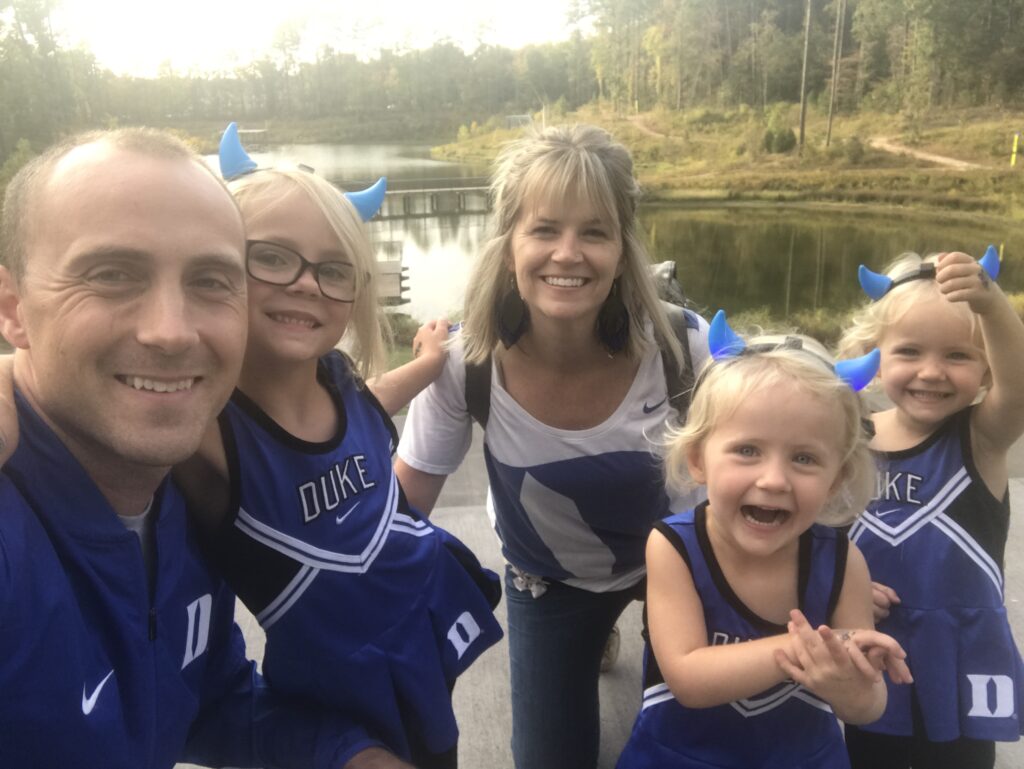 The Kumlien crew, wearing our Duke colors I won’t be running the New York City Marathon any time soon, but my interactions with Dr. White and the lessons learned in his class have inspired me to embrace hard work, to value diversity and to strive to do my absolute best in each job. Someday, when I blink my eyes and find myself running alone in Brooklyn, I’ll know that I’m exactly where I need to be. The post The Impact of Dr. Kevin White’s Sports Business Class on My Career appeared first on Duke Daytime MBA Student Blog. |
This Blog post was imported into the forum automatically. We hope you found it helpful. Please use the Kudos button if you did, or please PM/DM me if you found it disruptive and I will take care of it.
-BB
Kudos
Bookmarks
| FROM Fuqua Student Blogs: Experimenting in Entrepreneurship at Fuqua |
|
I’ve always been somewhat entrepreneurial. As a kid, I was always trying to up my lemonade stand game, from selling homemade soaps and lotions to putting my brother on the corner of our street with his violin. However, my professional journey has been more corporate, as I worked in consulting and tech before Fuqua. I decided to use my two years in business school to learn more about what it’s like to work with smaller companies—especially startups—and try my hand as a founder, experimenting in entrepreneurship. Fuqua has turned out to be the perfect place to do this and start my own venture through New Ventures courses and the Duke Student Founders program. New Ventures Fuqua offers a series of courses called New Ventures (formerly known as the Program for Entrepreneurs, or P4E) that enables students to form teams around business ideas and work on them for credit with regular larger group meetings once a week for two terms. In the first class, Discovery, we learned strategies for identifying areas of need and ideate solutions for them. Coming into Fuqua, I knew that the idea of entrepreneurship was exciting, but I wasn’t brimming with ideas like some of my peers were, so I loved learning how to think more outside the box. The format of the class is part lecture and part team startup formation, and it begins with everyone in the class pitching a problem space they’re interested in working on. I pitched the wedding collaboration space because when I planned my own wedding with my parents and in-laws (since they were the ones paying for it), it was a stressful experience to figure out and manage everyone’s preferences. Three awesome women joined my team and we researched the problem space. Our professor, Aaron Dinin, encouraged us to come up with many potential solutions, from simple ones to completely ridiculous. We learned that even a ridiculous solution could have some value! By the end of the course, my team and I had determined that we had a problem worth solving, and my classmate Denise Kootin-Sanwu and I decided to proceed to the Development course during our second year to try and solve it. In Development, we called our solution Wedzio. Our professor, Jamie Jones, supplemented our experiential learning with lectures on major challenges like how to build a startup financial model and how to test your assumptions, guest speakers such as the founders of Myxx and Maziwa, and the opportunity to pitch to potential investors and advisors. After conducting customer discovery interviews and developing a prototype and landing page, we used a grant from a generous donor to the Center for Entrepreneurship and Innovation to run a Facebook ad campaign to test how expensive customer acquisition would be and whether we were pitching to potential customers in a way that would interest them enough to click. We then learned how to make a pro forma financial model and create fundraising materials like an executive summary and pitch deck, and built each of these for Wedzio. The last piece of the Development class was to write a paper detailing the business plan and determine whether it was worth pursuing in the future. As we had suspected, when we made our financial model we realized that we could not avoid the difficult economics of the wedding industry and the substantial marketing dollars required to get the business off the ground and determined that Wedzio was not worth pursuing further right now. It’s hard to let go of a business idea once you’ve put so much time into it, but although Denise and I won’t be working on it much in the future I’m hopeful that someone out there who needs our solution will still have a chance to stumble across our Wedzio landing page. In the meantime, I’ll be cheering on the businesses started by some of my classmates that have grown during our New Ventures classes. Student Founder Program Alongside the New Ventures courses, I participated in the Duke-wide Student Founder Program, which is essentially a support group for aspiring and current founders. Like New Ventures, it’s a way to learn about entrepreneurship through action and weekly meetings. Unlike New Ventures, it’s not a class, so there’s no academic credit or assignments. Rather, It’s a good place to be vulnerable and authentic with other like-minded students and coaches, without the pressure of getting a grade. My Student Founder Program groups have provided a fantastic opportunity to ask for advice, meet other founders, and develop skills like mind mapping. It’s a great complement to the New Ventures courses. Takeaways from the Experience I may never have taken the time and effort to try building something like Wedzio outside of Fuqua’s New Ventures courses and the Student Founder network, so it was worth it! These courses enhanced my ability to think about how the status quo might be improved, which I expect will help me be a more creative employee in the future. I’ve gotten to meet other awesome student founders, increased my ability to work through ambiguity, and learned how hard it is to start a business, even if you have all the resources of a great university. Additionally, since there is a smaller community of student founders at Fuqua than at some other schools, I feel like I have gotten access to a larger share of resources and made stronger connections with faculty, other founders, and alumni entrepreneurs than I might have elsewhere. Upon graduation I’ll return to the corporate world, bringing with me a new wealth of entrepreneurship-inspired skills. On the side, I will continue advising startups trying to raise their first round of funds or apply for grants. Who knows, maybe someday I’ll be an intrapreneur! The post Experimenting in Entrepreneurship at Fuqua appeared first on Duke Daytime MBA Student Blog. |
This Blog post was imported into the forum automatically. We hope you found it helpful. Please use the Kudos button if you did, or please PM/DM me if you found it disruptive and I will take care of it.
-BB
